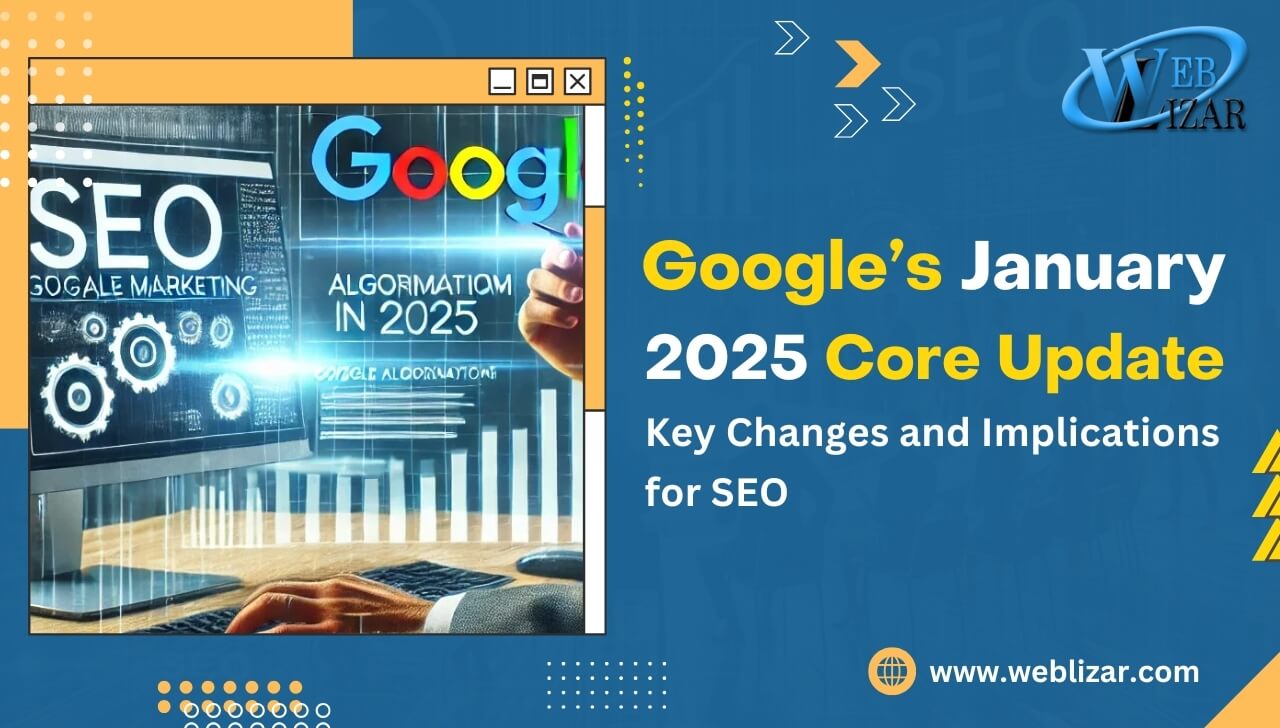Google’s January 2025 Core Update: Top Key Changes and Implications for SEO

- Google core update , Google update , Search Engine Optimization , Seo On WordPress , Seo plugins , SEO Pratices , SEO strategies , Technical Seo
- ai in seo, B2B Seo, Benefits of SEO, Google core update, google update, seo, SEO best practices
Google shakes up the SEO landscape with its updates at times, and the January 2025 Core Update is no exception either. All the Website owners, digital marketers, and SEO experts are once again reviewing the changes and finding ways to adjust their strategies to stay ahead in the race. This update shows Google’s dedication to improving search results by focusing on user experience, relevant content, and trustworthy sources.
In this blog, we’ll look at the biggest changes in the January 2025 Core Update and why they matter for SEO. No matter if you’re a blogger, business owner, or SEO expert, this information will help you adjust and improve your strategies.
Google’s January 2025 Core Update : Top Key Changes
1. Focus Increased on E-E-A-T
Google now values Experience, Expertise, Authoritativeness, and Trustworthiness (E-E-A-T) more than ever. Websites without credibility, real experience, or expert knowledge may drop in rankings.
What This Means:
- Sites with authentic, well-researched, and expert-written content will rank higher.
- User-generated content (UGC) and AI-generated content without human oversight may lose visibility.
- Personal branding, author profiles, and backlinks from reputable sources will be more important than ever.
2. AI-Generated Content Under More Scrutiny
With the rise of AI tools generating massive amounts of content, Google is cracking down on low-quality, AI-generated content that lacks depth or originality. While AI content isn’t outright penalized, Google favors human-edited, well-structured, and unique content.
What This Means:
- AI content needs human refinement, fact-checking, and personalization to perform well.
- Websites relying solely on automated content generation may experience ranking drops.
- Google prioritizes content that answers user intent rather than just stuffing keywords.
3. Enhanced Focus on Search Intent Matching
Google’s algorithm is now better at understanding user intent behind search queries. This means:
- Transactional searches (e.g., “buy best gaming laptop 2025”) will favor e-commerce pages.
- Informational searches (e.g., “how to optimize website speed”) will prioritize detailed guides.
- Navigational searches (e.g., “Facebook login page”) will show direct brand-related results.
What This Means:
- Content must align with user intent—if a page doesn’t meet intent, it may drop in rankings.
- Optimize landing pages and blog posts to directly answer search queries and provide value.
Suggested Post: Top WordPress Premium Plugins For SEO
4. Stricter Spam and Low-Quality Content Penalties
Google has improved its spam detection to catch bad links, low-quality content, and tricky SEO tactics. Websites with spammy backlinks, too many keywords, or misleading content could lose rankings.
What This Means:
- Avoid PBNs (Private Blog Networks), excessive guest posting for backlinks, or irrelevant link-building strategies.
- Focus on high-quality, natural backlinks from trusted websites.
- Ensure content provides value rather than being written solely for ranking.
Also Check: Top WordPress Premium Themes
5. Page Experience and Core Web Vitals Matter More Than Ever
Google prioritizes fast, mobile-friendly, and visually stable websites. So the sites with slow load times, poor user experience, or too many ads may see a drop in rankings.
What This Means:
- Improve page speed and responsiveness by optimizing Core Web Vitals.
- Mobile Responsiveness and Seamless user experience should be the priority for your Website.
- Reduce intrusive pop-ups and excessive ads that disrupt user engagement on your website.
Next Read: Get trendy HTML templates to start your web project.
Plan Your SEO Strategy for 2025
Now that all the important key changes are covered, here’s how you can adjust your SEO strategy to stay in the competition:
1. High-Quality, Expert-Driven Content Should Be the Priority
- Publish original, well-researched content with expert insights.
- Add author bios, credentials, and sources to boost credibility.
- Use data-driven content (charts, statistics, case studies) to support your claims.
2. Audit and Improve Existing Content
- Use Google Search Console to find pages with traffic drops and update them.
- Ensure all content is aligned with user intent and provides in-depth answers.
- Improve internal linking to enhance crawlability and user navigation.
3. Optimize for Core Web Vitals and UX
- Speed up your website by compressing images and minifying CSS/JavaScript.
- Ensure your website loads within 2-3 seconds for optimal and best performance.
- Make sure your site adapts seamlessly to all devices (mobile-first approach).
4. Strengthen Your Link-Building Strategy
- Earn high-quality, relevant backlinks. Focus on Quality rather than focusing on quantity.
- Disavow toxic and spammy backlinks to prevent ranking penalties.
- Engage in natural link-building through guest blogging and collaborations.
5. Stay Updated with Google’s SEO Guidelines
- Follow Google Search Central Blog for official announcements.
- Monitor SEO forums and communities (like Search Engine Journal, Moz, and Ahrefs).
- Regularly test your site’s performance using Google Search Console and Analytics.
Suggested : Top Free WordPress Themes
Final Thoughts: The Future of SEO After the January 2025 Update
Google’s January 2025 Core Update supports the importance of quality, relevance, and UX. So the websites that rely on manipulative tactics, AI-generated stuff, or poor user experience (UX) will struggle, while those that focus on E-E-A-T, intent-driven content, and SEO best practices will thrive in the coming time.
By adapting to these changes, you can future-proof your website, maintain strong rankings, and stay ahead in the evolving world of SEO.
So to flourish your website you should start auditing your website today, refine your content strategy, and stay proactive in adapting to Google’s latest changes!
What do you think about the January 2025 Core Update? Have you noticed any ranking changes? Share your thoughts in the comments!



Leave a Reply